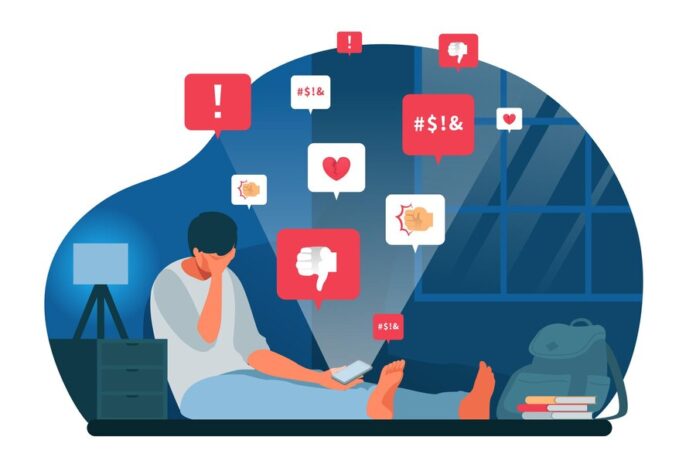Introduction to Igagony in the Digital World
In today’s fast-paced digital landscape, a new phenomenon has taken center stage—Igagony. Defined as the pain and emotional distress experienced from social media interactions, Igagony is a term that resonates with many users who find themselves trapped in an endless loop of scrolling and comparison. Social media has woven itself into the fabric of our daily lives, making it a powerful force that can shape emotions and perceptions. This blog unravels the hidden effects of Igagony on mental health, offering insights and strategies to help mental health advocates, social media users, and health enthusiasts better understand its impact and manage its influence.
The Psychology Behind Igagony
The human brain is naturally wired for social interaction. With the advent of social media platforms, our interactions have transcended physical boundaries, allowing us to connect with countless individuals worldwide. While this presents numerous opportunities for connection, it also introduces unique challenges to mental health. Igagony arises when online interactions become a breeding ground for anxiety, stress, and self-doubt, affecting the brain’s reward system and emotional regulation.
The mind often seeks validation through likes, comments, and shares, creating a dopamine-driven cycle of anticipation and reward. However, when expectations aren’t met, feelings of inadequacy and disappointment can overshadow the positive aspects of online engagement. The psychological toll of Igagony can lead to heightened anxiety, depression, and a distorted self-image, impacting mental resilience and overall well-being.
Social Comparison and Self-Esteem
One of the most profound effects of Igagony is its ability to fuel negative self-perception through social comparison. Users frequently compare themselves to the idealized versions of others’ lives displayed on social media. This constant comparison can lead to feelings of inferiority and inadequacy, damaging self-esteem and self-worth.
The curated nature of social media content often presents a distorted reality, where only the highlights of life are shared. This selective portrayal can make individuals feel that their own lives fall short, exacerbating feelings of loneliness and dissatisfaction. Understanding how Igagony operates within this framework is crucial for developing strategies to combat its adverse effects and nurture a healthier self-image.
The Role of Social Media Platforms
Social media platforms hold a significant responsibility in mitigating Igagony and promoting mental health awareness. These platforms have the power to influence user behavior through algorithms, content moderation, and community guidelines. By prioritizing user well-being over engagement metrics, platforms can shift towards creating a safer and more supportive online environment.
Initiatives such as promoting mental health resources, implementing stricter content moderation policies, and encouraging authentic interactions can pave the way for positive change. Social media companies can also collaborate with mental health organizations to raise awareness about the risks of Igagony and empower users to foster a healthier online culture.

Coping Strategies for Managing Igagony
For individuals grappling with Igagony, adopting effective coping strategies is essential for safeguarding mental health. Practicing digital mindfulness involves setting boundaries around social media usage, such as limiting screen time and curating a positive feed that aligns with personal values. Engaging in offline activities and nurturing meaningful relationships can also provide a much-needed respite from the digital world.
Mindfulness meditation and journaling are powerful tools for processing emotions and gaining clarity on one’s feelings. By cultivating self-awareness, individuals can identify triggers and redirect their focus towards activities that promote well-being. Seeking support from mental health professionals or joining online communities focused on wellness can offer additional guidance and encouragement.
Building a Healthy Online Environment
Creating a healthy online environment requires collective effort from individuals and communities. Encouraging positive interactions and fostering empathy are integral to reducing the prevalence of Igagony. Users can contribute by practicing kindness in their online interactions, refraining from judgment, and supporting others’ successes.
Communities can establish guidelines that prioritize respectful communication and celebrate diversity. By sharing personal experiences and insights, individuals can create a sense of belonging and solidarity, reducing the isolation often associated with Igagony. Ultimately, a supportive online culture contributes to enhanced mental resilience and a more fulfilling social media experience.
Conclusion: Fostering Mindful Online Engagement
The hidden effects of Igagony on mental health underscore the importance of promoting mindfulness and awareness in the digital age. By understanding the psychological mechanisms at play, social media users can make informed choices that prioritize well-being. Cultivating a supportive online environment requires collaboration from platforms, individuals, and communities, all working together to champion mental health.
By taking proactive steps to manage Igagony, individuals can enjoy the benefits of social media without compromising their mental resilience. Remember, every small action contributes to a larger movement towards a healthier online culture. Together, we can pave the way for a brighter, more connected future where Igagony no longer holds sway over our mental well-being.


